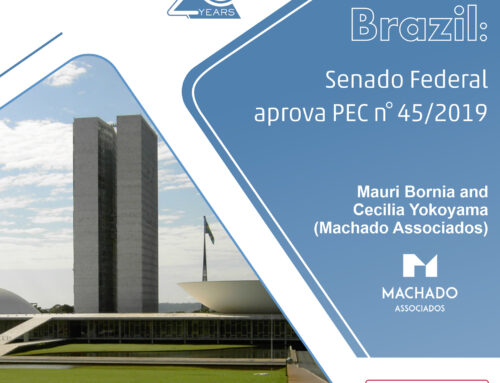Tax News Chile
1) ‘SII’ (‘Servicio de Impuestos Internos’ – Internal Revenue Service) established tax compliance measures to control multinational firms, acts of illegal trade and ‘influencers’.
The ‘SII’ has undertaken a Tax Compliance Management Plan for 2019. The goals of this plan is to reduce the evasion and avoidance by strengthening the control of large taxpayers, and carry out a greater oversight of multinationals, the informal economy, the digital economy and the ‘influencers’.
A special attention will be paid to the so-called ‘aggressive taxpayers’, that is, to those who intend to carry out operations associated with commercial fraud and crime schemes. The purpose of this is to refer to the ‘SII’ offices 100% of the issuers of invoice that are considered part of the risk group.
Regarding the multinationals, the goal of the ‘SII’ is to reduce by 10% the number of non-reporting taxpayers of operations abroad through affidavits, and by reducing the non-compliances for the large taxpayer segment to 0%.
The ‘SII’ noted that there will be a strict control and an exhaustive monitoring to ‘influencers’. As a first stage, a list of the main names of ‘influencers’ has been elaborated to initiate a dialogue and information process, as it is a new issue.
‘SII’ goals in reference to this Tax Compliance Plan:
• For all taxpayers: To reduce the current gap from 15,3% to 13% in 2019, and 10% in 2020.
• For taxpayers with gaps and repeated anomalies: To reduce the current gap from 13,7% to 7% in 2019, and 1% in 2020.
• For large companies: To reduce the current gap of 10% to 8% in 2019, and 0% in 2020.
2) Update of the current statud of the project of tax reform sent to the Executive on august 23rd, 2018.
At a first stage, the proposal of the government was rejected by the opposition. However, parliamentarians of the opposition established conditions to the government to negotiate the project.
The requests of the opposition were that the proposal is not regressive, that is, that those who pay more are not those who have less; that the reform does not reduce the tax collection due to a possible exemption from taxes to large companies; that the supervisory powers of the ‘Servicio de Impuestos Internos’ (‘SII’ – Internal Revenue Service) are not weakened while performing its activity of detecting and sanctioning evasion; and improve the system for small and medium Companies; among others.
The integrated system is one of the main topics in the discussion. This, generally speaking, consists in the fact that entrepreneurs as individuals will not pay personal taxes, but will tax directly through the company of which they are partners or shareholders. In addition, the Treasury returns part of what the company has paid, existing a kind of credit or deduction against the final charges assumed by partners and shareholders.
There are several economic and business sectors that propose to reduce taxes to companies and, on the other hand, double the tax proposed by the Executive to multinational digital platforms such as Netflix and Uber, among others.
The opinions come from various political, economic and social sectors, there being arguments and criticisms that are made to the tax reform bill in the sense that it would benefit only some of the small and medium enterprises.
This newsletter focuses on key proposed tax changes set out in the Proposal, including a significant overhaul to Chile’s corporate / shareholder income tax system currently in effect, the introduction of a Digital Service Tax, and other changes that may be relevant to Chilean and non-Chilean multinational enterprises doing business in Chile.
Bill’s main guidelines
a) The bill seeks to encourage economic growth, entrepreneurship, investment, savings, and job creation.
b) Focuses on making growth easier for SMEs and entrepreneurs.
c) Respects vertical equity and restores horizontal equity.
d) Seeks to provide legal certainty and predictability for taxpayers.
e) Introduces new tax rules on the digital economy.
f) Modernizes the taxpayer’s relationship with the SII
g) Safeguards fiscal neutrality.
Single Corporate / Shareholder Tax System
a) A general and single tax system for all corporate taxpayers. Fully Integrated income tax System (“SIT”).
b) Full integration (corporate tax fully imputable against shareholder taxes
c) Shareholder taxes based on effective distributions (cash basis).
d) Corporate tax rate is preserved: Tax rate of 27%: taxpayers in SIT; Tax rate of 25%: taxpayers with “Cláusula Pyme”.
e) Simplification of tax records: Taxpayers with no taxexempted profits need not keep special tax records.
Other proposals
-General anti-avoidance rules.
-Rules on deductibility of expenses.
-Modifications to the VAT law.
-Rules for foreign investors.
-Taxation of natural persons.
-Rules for audits and defense of taxpayers.
*The reform is still in the first step in the Chamber of Deputies, should still go through the Senate, perhaps by mixed commission and even by review in the Constitutional Court.





